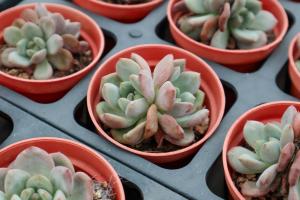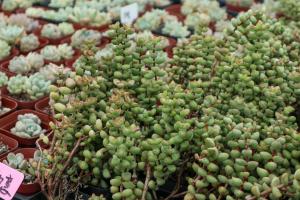Introduction
When it comes to taking care of our plants, one of the most common questions that gardeners and plant enthusiasts ask is whether or not they should take their plant out of the plastic pot it came in. This question has no single answer as it depends on several factors and considerations which we will explore further in this article.
The Pros and Cons of Keeping Your Plant in a Plastic Pot
The primary reason why plants are sold in plastic pots is that they are cheap and readily available. Plastic pots also retain moisture well, helping to keep the soil moist for longer periods, which is essential for plant growth. However, there are some disadvantages to keeping your plants in plastic pots, particularly in the long term.
One significant disadvantage is that plastic pots do not provide adequate drainage, which can lead to overwatering, root rot, and pest infestations. Additionally, plastic pots can cause a build-up of salts, minerals, and other chemicals in the soil, which can be harmful to the plant.
When to Consider Taking Your Plant out of a Plastic Pot
There is no rule of thumb on when to move your plant out of a plastic pot. Still, some scenarios or signs may indicate that it's time to make the switch. For instance, if you notice that the plant is outgrowing the pot, its roots are getting pot-bound, or the pot is no longer holding moisture as it used to, it's probably time to move it to a more suitable container.
Another factor to consider is the type of plant you're growing. Some plants, such as succulents, prefer well-draining soil and may not thrive in plastic pots that retain too much moisture. Other plants that prefer a moist soil environment, such as ferns, may benefit from being repotted to containers that can hold more water, such as ceramic or clay pots, which allow for better drainage.
The Process of Transplanting Your Plant
If you've decided to take your plant out of its plastic pot, there are a few steps to follow to ensure a successful transition. Firstly, prepare the new pot by filling it with fresh soil mix. Gently remove the plant from its old pot, taking care not to damage the roots, and loosen any tightly wound roots to encourage new growth.
Place the plant in the new pot, ensuring that its root system is well-covered by the soil mix. Water the plant thoroughly and place it in an appropriate location where it can receive enough sunlight and air circulation.
Conclusion
So, should you take your plant out of the plastic pot? The answer is, it depends. While plastic pots provide a cheap and readily available option for growing plants, they may not always be the best for the plant's long-term health. Consider the type of plant you're growing, signs of pot-bound roots, and the pot's drainage before making the decision to transplant your plant to a new pot. With proper care and attention, your plant will thrive in its new environment, bringing brightness and beauty to your indoor or outdoor space.

 how many times do yo...
how many times do yo... how many planted tre...
how many planted tre... how many pine trees ...
how many pine trees ... how many pecan trees...
how many pecan trees... how many plants comp...
how many plants comp... how many plants can ...
how many plants can ... how many plants and ...
how many plants and ... how many pepper plan...
how many pepper plan...
































